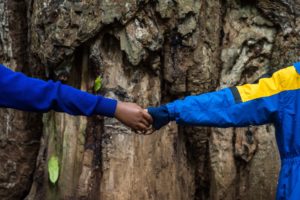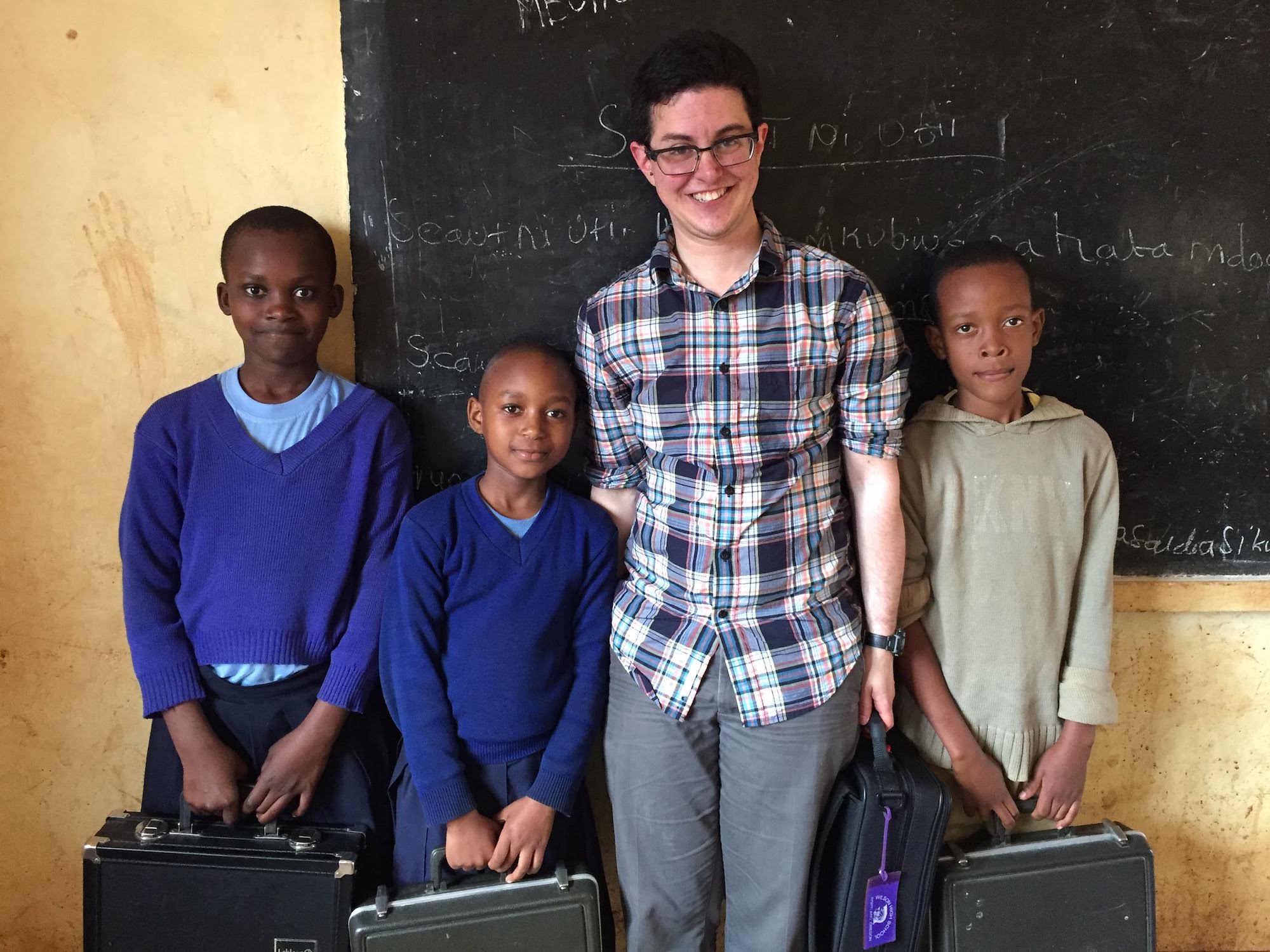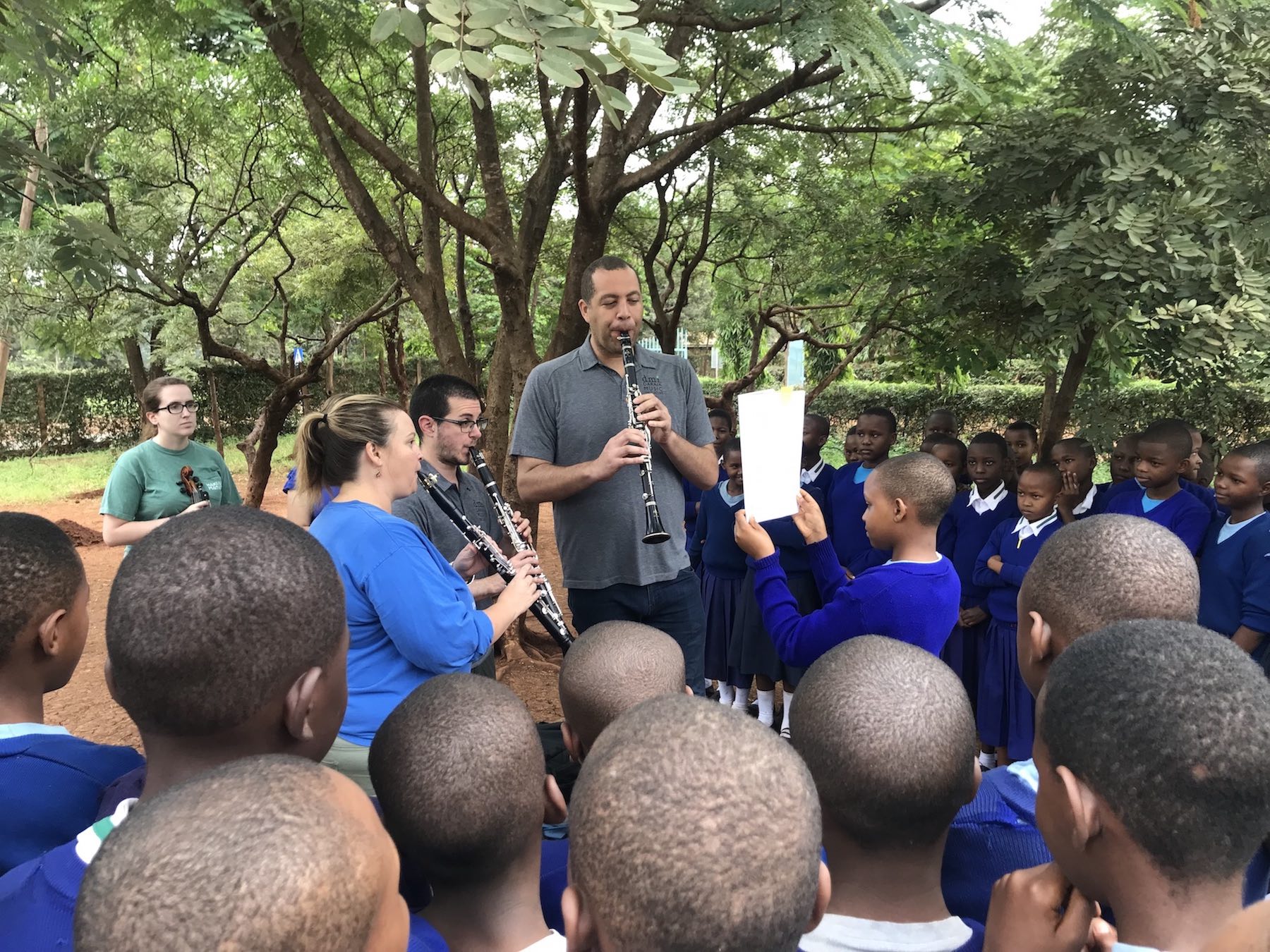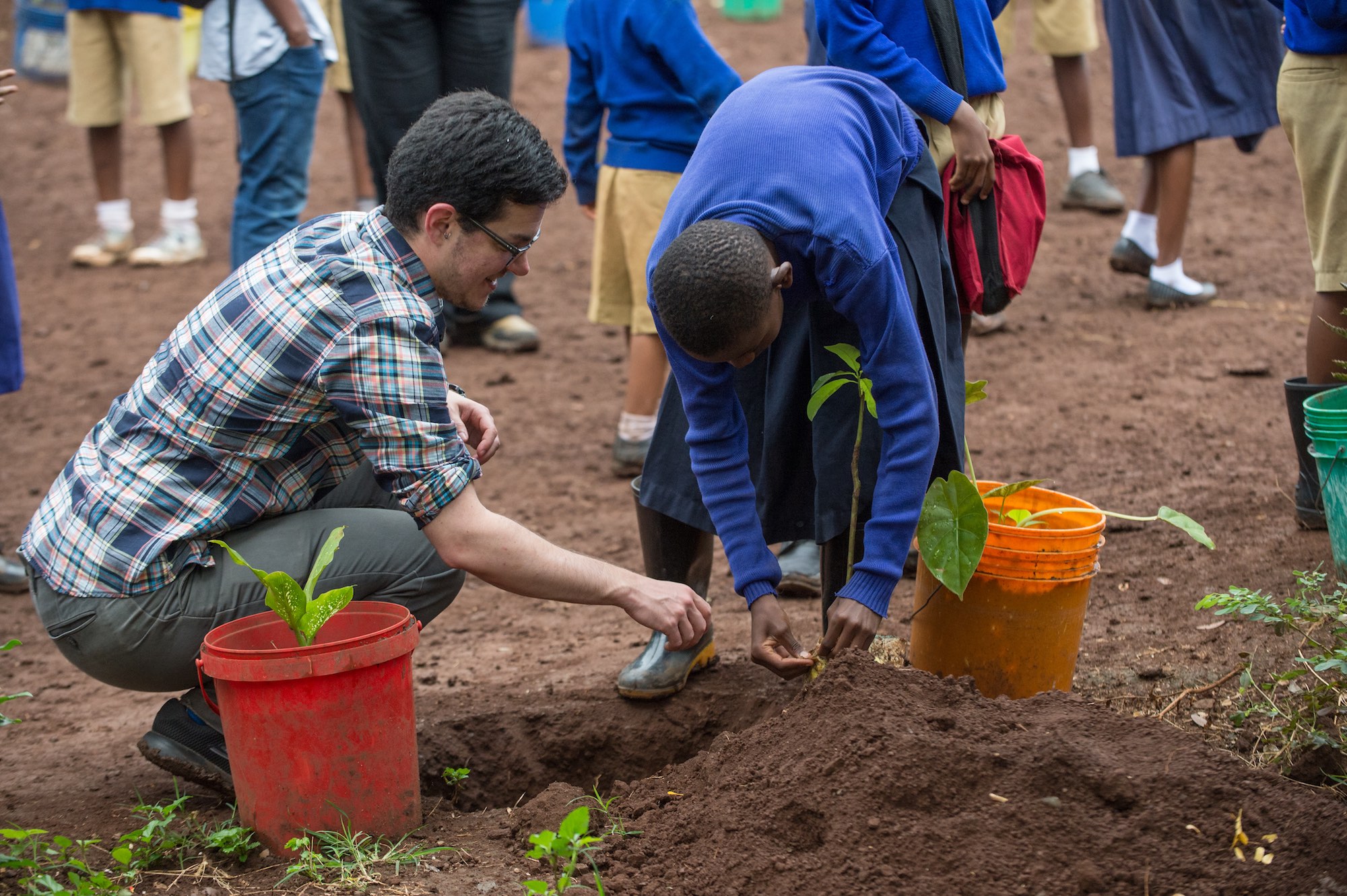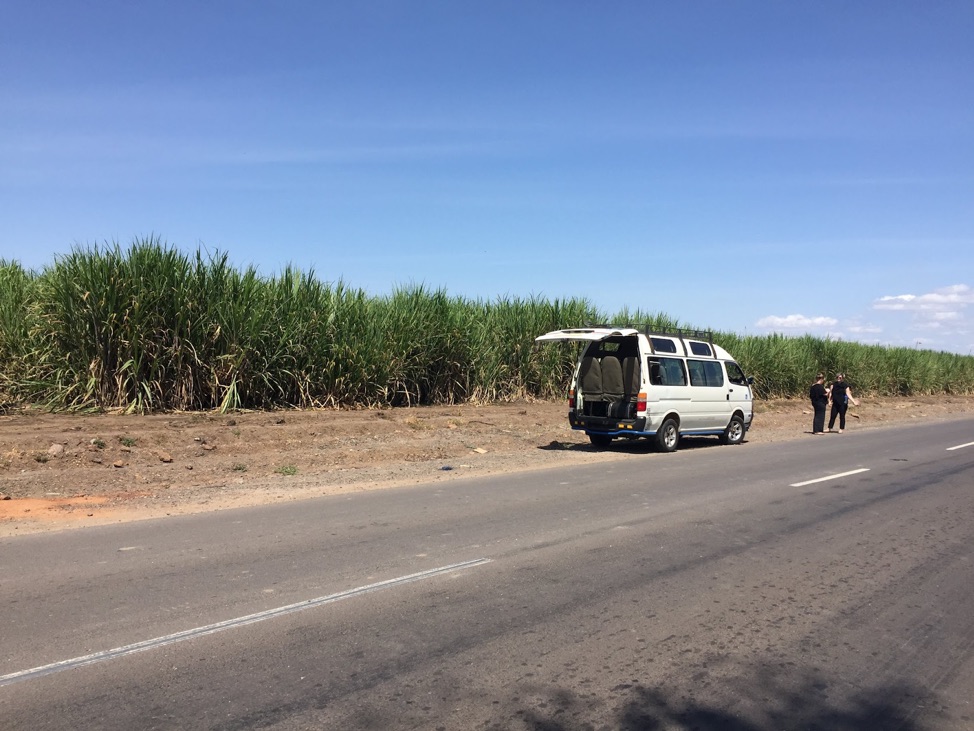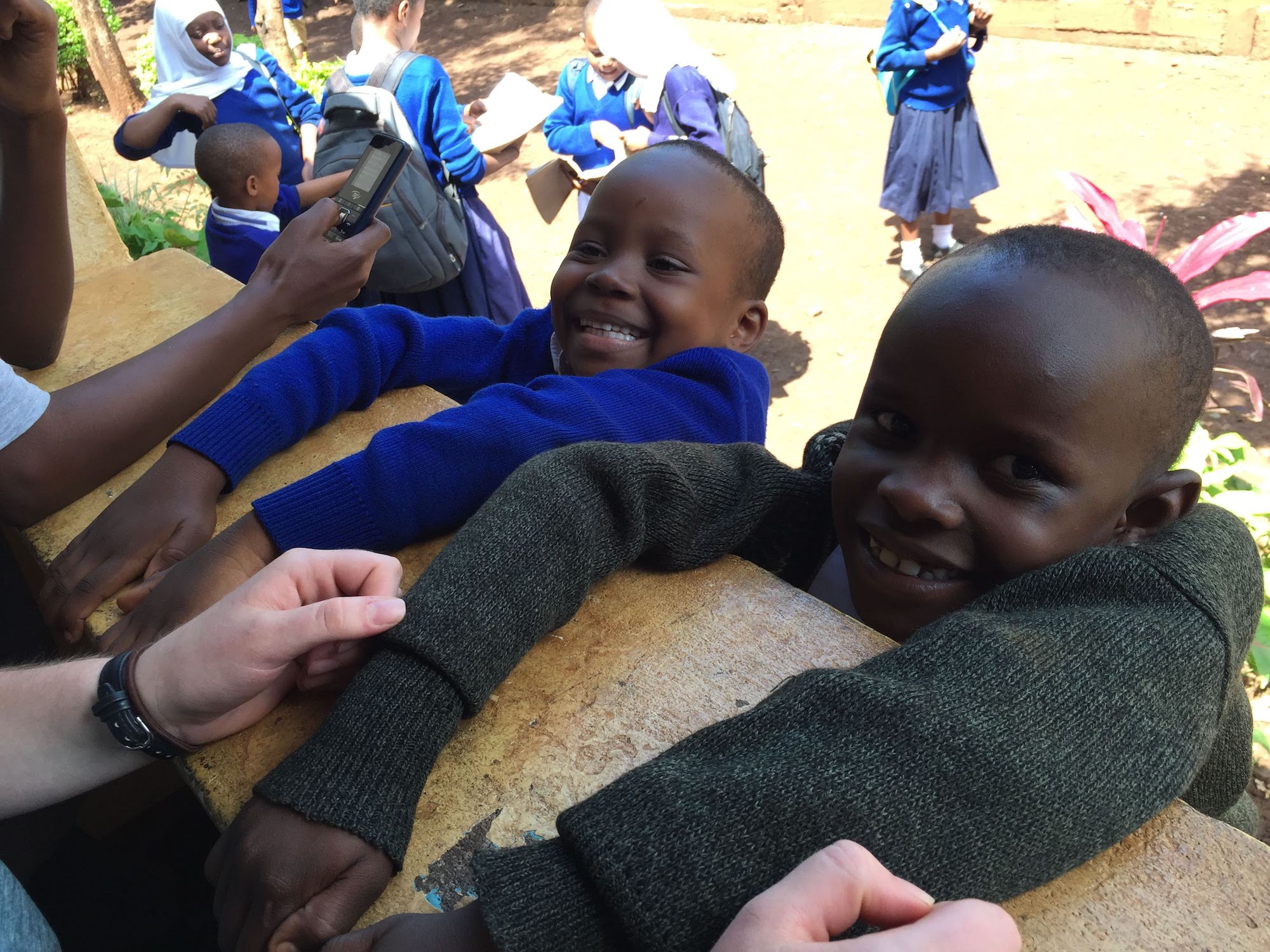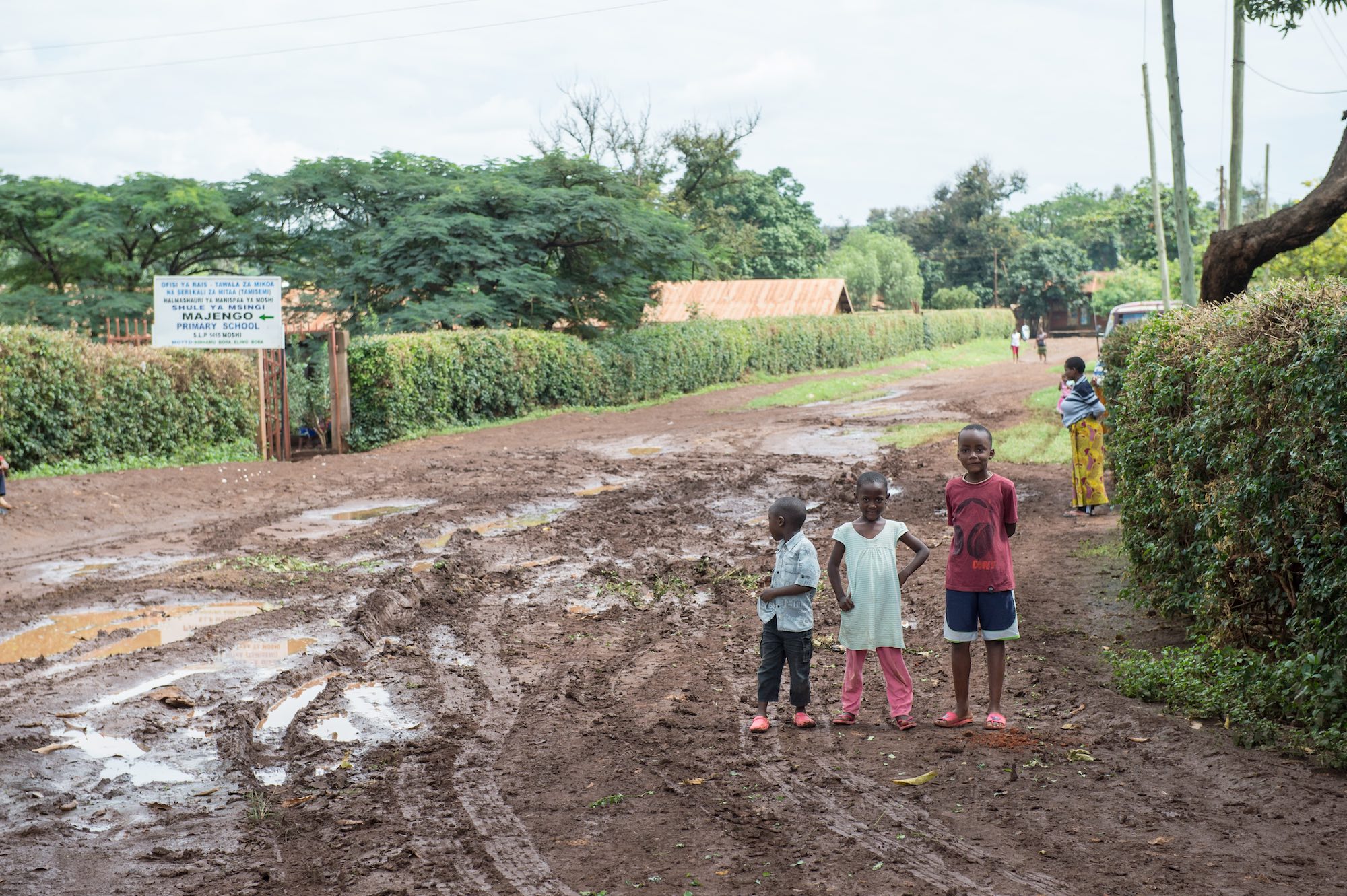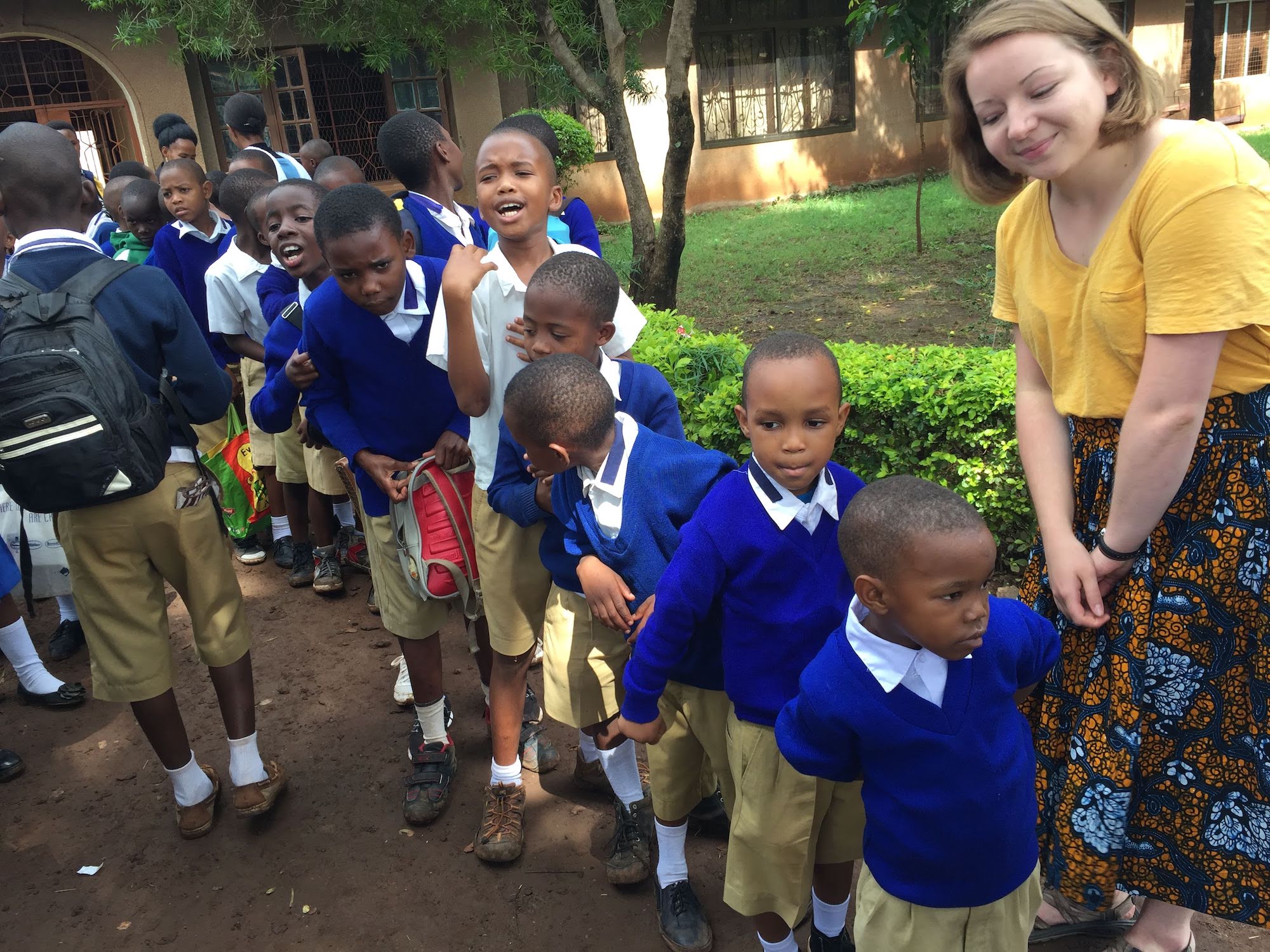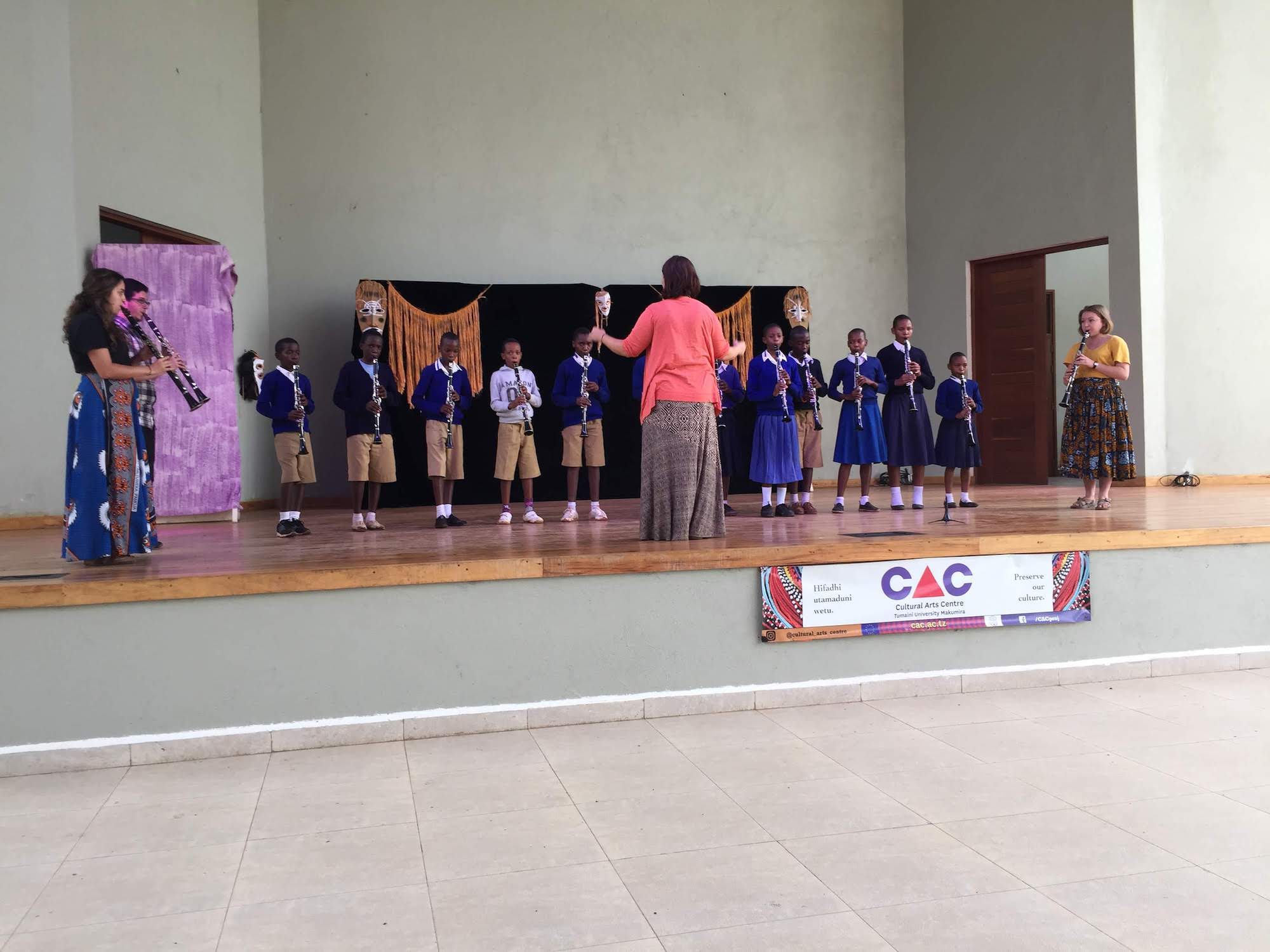In my life outside of being a software engineer at New Relic, I am a musician. I have a masters degree in clarinet performance, play with a community band, and have half a dozen private clarinet students.
Musical instruments like the clarinet and oboe are made from the wood of the mpingo tree, also known as African blackwood, which is the national tree of Tanzania and grows throughout East Africa. For three weeks both this summer and last, I traveled to the Kilimanjaro region of Tanzania to work with an NGO called the Daraja Music Initiative (DMI) that works to preserve the mpingo. I taught daily clarinet classes to primary and secondary school students, planted mpingo trees, and shared my music with hundreds of children.
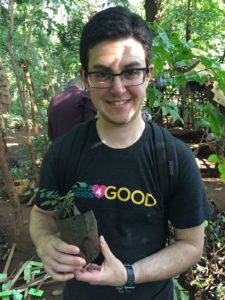
Want to learn more? “Daraja Music Initiative provides an interdisciplinary approach to sustainability through music education. DMI promotes awareness of conserving Mpingo trees—commonly referred to as African Blackwood or Grenadilla—by engaging students and communities through the power of music. For more information or to make a donation, visit http://www.darajamusicinitiative.org/
Having spent a month and a half in Tanzania building strong friendships with fellow musicians there, I would like to share three phrases that symbolize what I learned about Tanzanian culture and how they helped me become a better coworker, teacher, and software engineer.
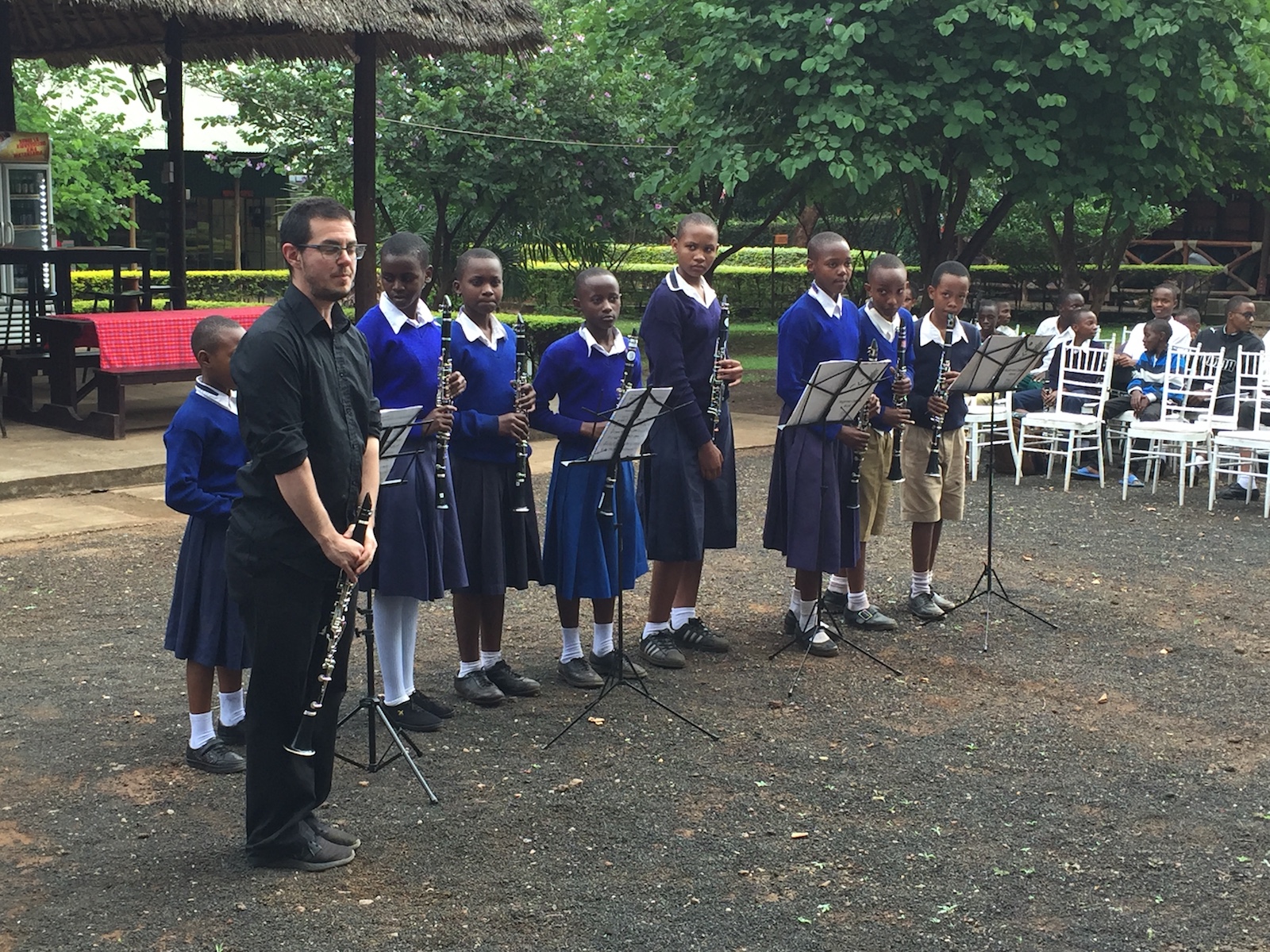
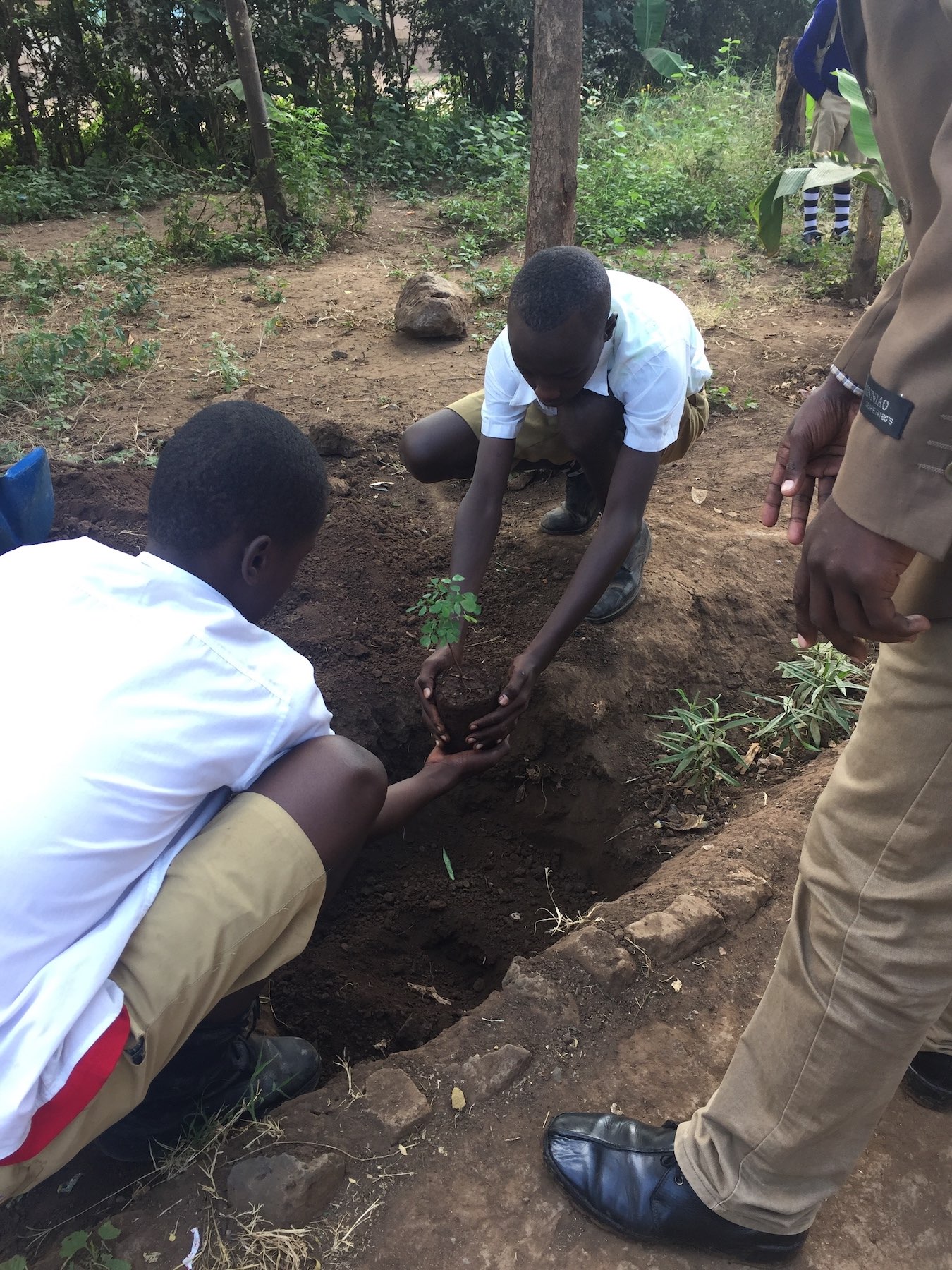
Pamoja: together
When Julius Nyerere led Tanzania to independence in 1961, he wrote (according to my edition of Lonely Planet Tanzania) about “his belief that the personal accumulation of wealth in the face of widespread poverty was antisocial. Africa should strive to create a society based on mutual assistance and economic as well as political equality, such as he claimed had existed for centuries before European colonization.”
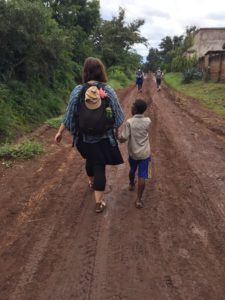 This belief that the best and fastest way out of poverty comes through working together still holds strong in Tanzania. Every day in the classroom, we witnessed students helping each other. The experienced players were eager to sit next to newer players and assist them when they struggled.
This belief that the best and fastest way out of poverty comes through working together still holds strong in Tanzania. Every day in the classroom, we witnessed students helping each other. The experienced players were eager to sit next to newer players and assist them when they struggled.
I, too, was on the receiving end of this support. One Sunday afternoon on our way to a gig, our van broke down, as often happens in Africa. We were already running late, so we decided to hitchhike (in Tanzania, you ask for a ride by putting out an open hand to the road instead of your thumb). At least one car full of fellow wazungu (white people) raced by without stopping. Then a large dump truck pulled up to us. We were helped into the back, with the locals reaching down to grab our music stands and lend us a hand.
Though they spoke very little English, and we spoke very little Swahili, we were able to share simple details about our lives: “We are musicians.” They shared some warm and questionable homebrew. We all laughed together.
When we got to where we were going, our new friends carefully lowered our instruments down to us and waved us goodbye.
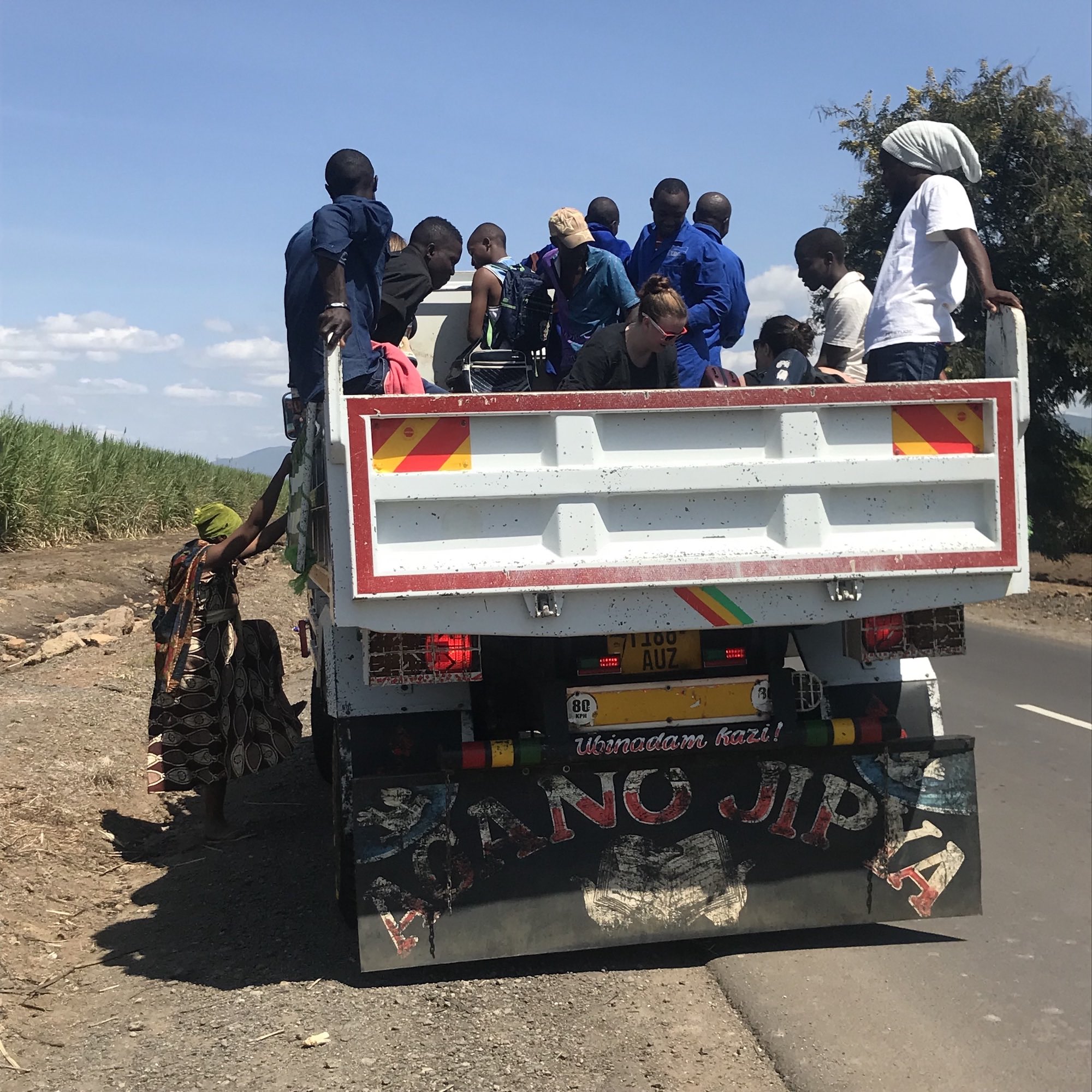
Similarly, software engineers in an organization work together toward a collective good. We work on teams. Those teams collectively create a product. When our product does well, so does our company.
One example of how I’ve brought pamoja home with me is by focusing on training and teaching. For example, when receiving a code challenge from a Technical Support Engineer candidate for an open req on my team, I now take the time to sit down with them in person and discuss their code—even if they did not get selected for the job.
Kaka na dada: brothers and sisters
In East African culture, everyone is a sibling, even when they are not related by blood. This sense of family goes beyond just the use of language. Frequently, you’ll see people—male and female—hugging, touching, or having their arms around their same-sex friends. This is because of the close emotional ties they have to one another. My friend Elijah E. Jacob, a fellow volunteer, put it well in a Facebook post last summer:
So during class this week, a small incident occurred between two of my students. Don't ask me how, but one boy ended up biting another … Some tears were shed, and for a moment, it seemed like a friendship may have ended.
However, and how beautiful is this, when the Tanzanian teachers were told of the problem, the response was not anger or reprimanding. The boy who was bitten was asked, "Do you think your friend should be punished?"
No answer... I'm sure he wasn't sure how to answer, but eventually he shook his head. Then the teacher told them both, "This is good. Treat each other as brothers because this is what you are. Love each other, and look after one another."
The friendship lives on stronger than ever.
I thought getting to Tanzania was one of the hardest things in my life, leaving is going to be the real ordeal.
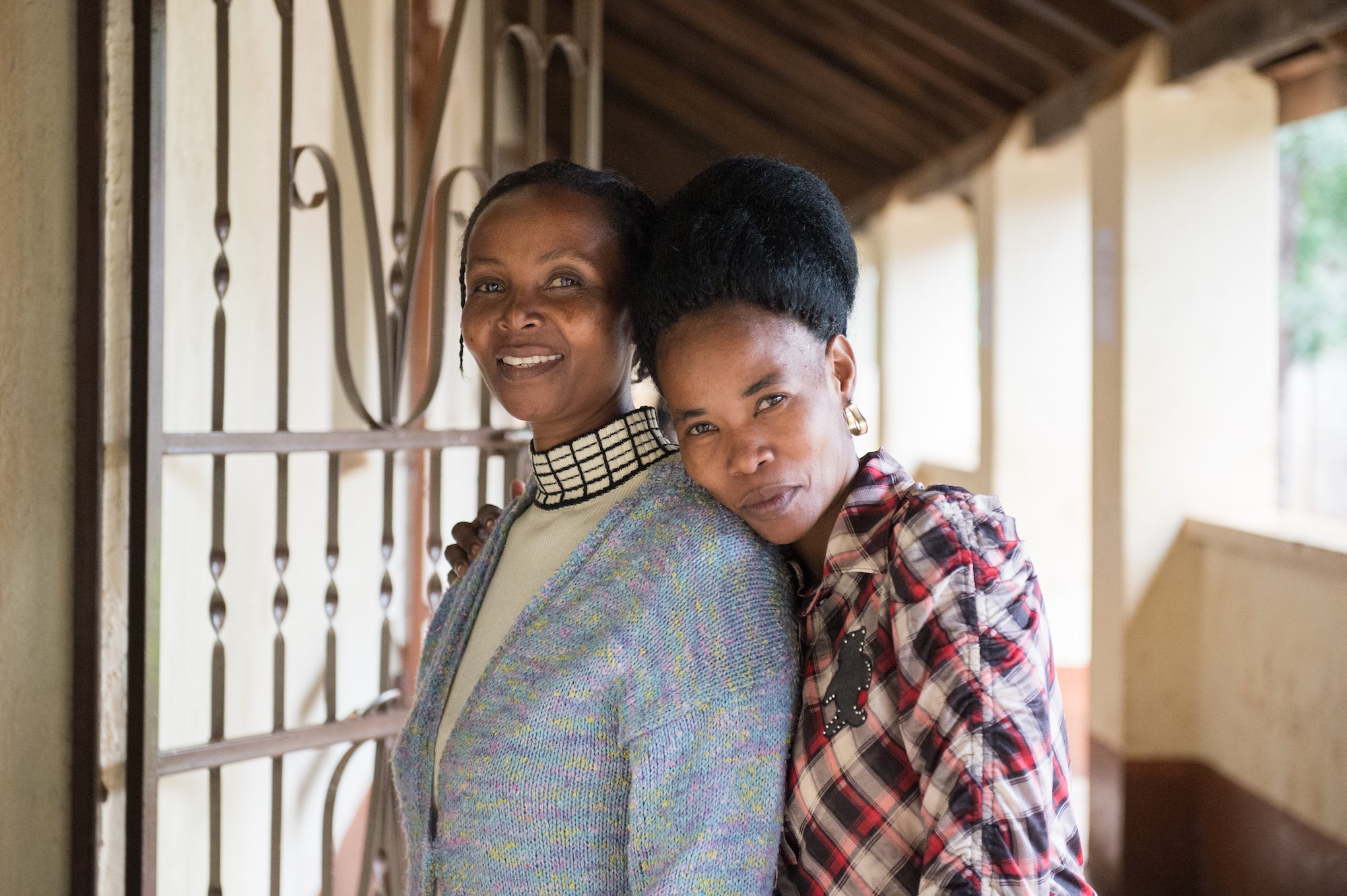
Back home in my engineering role, I do my best to think of my coworkers as my brothers and sisters. I expect the best from each of them but try to forgive them when they cannot give it 100% of the time. As a team, we partake in blameless retros. We allow each other to mess up every once in a while and learn from our mistakes, all while still caring for one another deeply.
Pole pole: slowly or carefully
In Swahili, “pole pole” has a greater meaning than just “slowly.” It can also mean “take care” or “watch where you’re going,” and it can also be used to express the life philosophy similar to the French phrase “c'est la vie:” “Such is life, don’t worry about things, everything will be alright in the end.”
Every summer, the students in the DMI program get to go on a field trip to Makumira University in the nearby city of Arusha. For some, this is their first time getting to leave their hometown. For most, it is their first chance to visit a University and see what could be possible for them after secondary school. Last summer, this field trip also meant getting to perform on stage in the school’s brand new performing arts center. The students were beyond pumped. The buses came to pick us up, and we were all ready to go.
Unfortunately, though, it had rained overnight. Since most of the streets in the area are unpaved, they had turned to mud. We got stuck—deeply and completely.
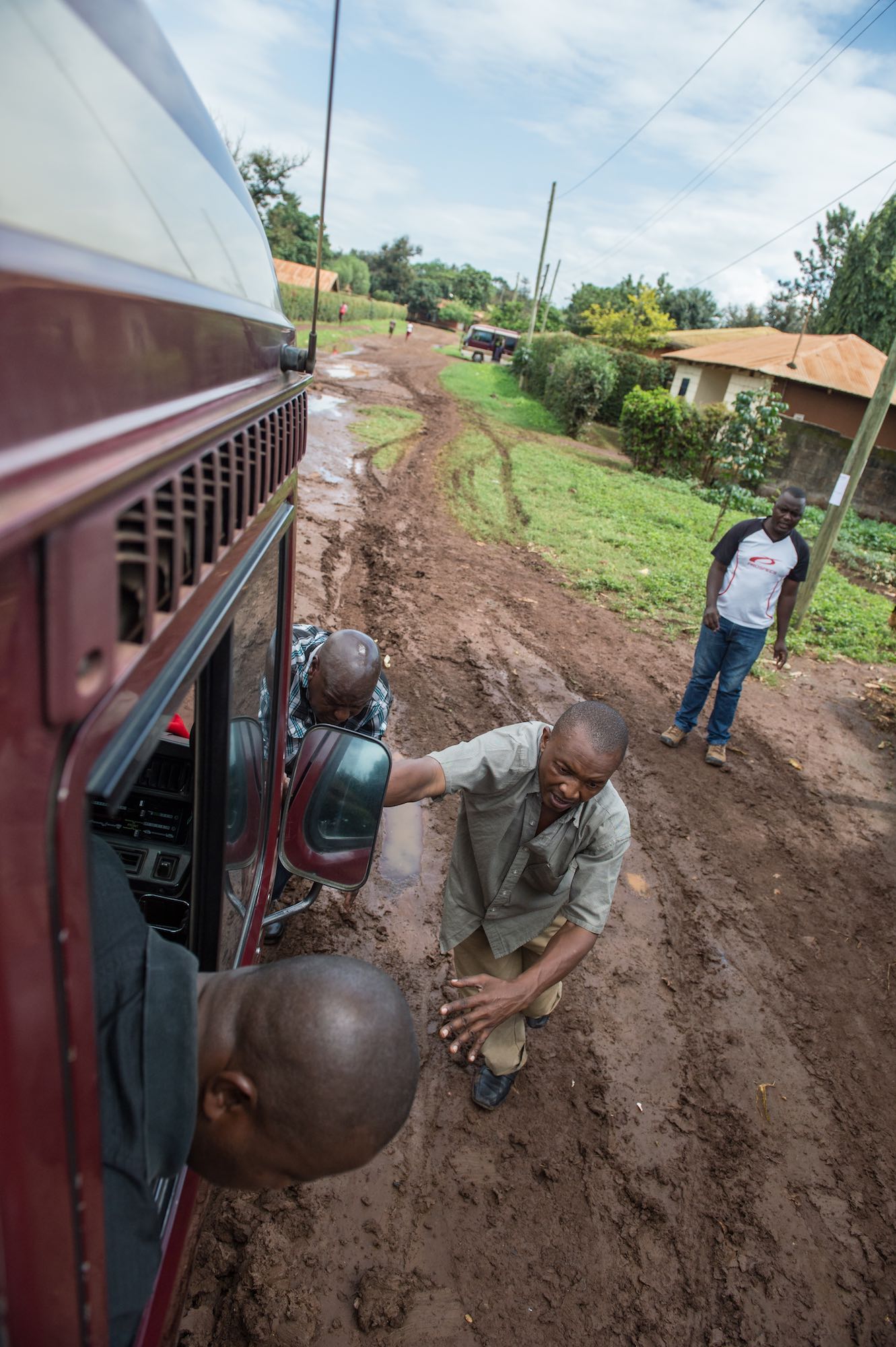
We wazungu thought we’d have to cancel the trip as the bus driver fought endlessly to get us out. The students weren’t worried at all, though. And sure enough, pretty soon men from all over the neighborhood came out to lend us a hand. There must have been half a dozen of them. One had a shovel, others brought rocks and dried grass. They basically built us a new road so that the bus could be freed. We were now more than an hour late, but pole pole, we were on our way.
My error here was that I was too quick to give up. As Westerners, we sometimes feel like everything must be done either on time and perfectly or not at all. But I was reminded that if you take your time and work together, many things are possible. As a software engineer, I try to think to myself, “pole pole” each time I get a particularly difficult support ticket. It is worth it to our customers to take the time to get to the bottom of their problems.
Bringing it all home
To wrap up, I encourage software engineers to think about one thing that you can do this week to bring the concepts of pamoja (together), kaka na dada (brothers and sisters), and pole pole (slowly or carefully) to your own work. No society is perfect, but I feel that my friends in Tanzania have given me so much by sharing some of the best parts of their culture with me. I hope you, too, can benefit.
Die in diesem Blog geäußerten Ansichten sind die des Autors und spiegeln nicht unbedingt die Ansichten von New Relic wider. Alle vom Autor angebotenen Lösungen sind umgebungsspezifisch und nicht Teil der kommerziellen Lösungen oder des Supports von New Relic. Bitte besuchen Sie uns exklusiv im Explorers Hub (discuss.newrelic.com) für Fragen und Unterstützung zu diesem Blogbeitrag. Dieser Blog kann Links zu Inhalten auf Websites Dritter enthalten. Durch die Bereitstellung solcher Links übernimmt, garantiert, genehmigt oder billigt New Relic die auf diesen Websites verfügbaren Informationen, Ansichten oder Produkte nicht.

